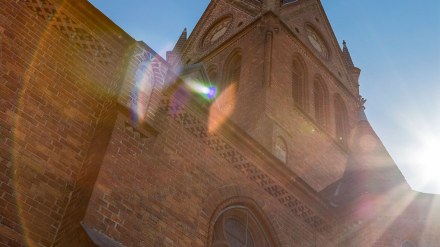Congress has imposed special limitations, found in section 7611 of the tax code, on how and when the Internal Revenue Service (IRS) may conduct civil tax inquiries and examinations of churches. The IRS may only initiate a church tax inquiry if an appropriate high-level Treasury Department official reasonably believes, based on a written statement of the facts and circumstances, that the organization (a) may not qualify for the exemption or (b) may not be paying tax on an unrelated business or other taxable activity.
Restrictions on church inquiries and examinations apply only to churches and conventions or associations of churches. They don’t apply to related persons or organizations. Thus, for example, the rules don’t apply to schools that, although operated by a church, are organized as separate legal entities. Similarly, the rules don’t apply to integrated auxiliaries of a church.
Restrictions on church inquiries and examinations do not apply to all church inquiries by the IRS. The most common exception relates to routine requests for information. For example, IRS requests for information from churches about filing of returns, compliance with income or Social Security and Medicare tax withholding requirements, supplemental information needed to process returns or applications, and other similar inquiries are not covered by the special church audit rules.
Restrictions on church inquiries and examinations don’t apply to criminal investigations or to investigations of the tax liability of any person connected with the church, such as a contributor or minister.
The procedures of section 7611 are used in initiating and conducting any inquiry or examination into whether an excess benefit transaction (as that term is used in IRC Section 4958) has occurred between a church and an insider.
The sequence of the audit process is:
1. If the reasonable belief requirement is met, the IRS must begin an inquiry by providing a church with written notice containing an explanation of its concerns.
2. The church is allowed a reasonable period in which to respond by furnishing a written explanation to alleviate IRS concerns.
3. If the church fails to respond within the required time, or if its response is not sufficient to alleviate concerns, the IRS may, generally within 90 days, issue a second notice, informing the church of the need to examine its books and records.
4. After issuance of a second notice, but before commencement of an examination of its books and records, the church may request a conference with an IRS official to discuss IRS concerns. The second notice will contain a copy of all documents collected or prepared by the IRS for use in the examination and subject to disclosure under the Freedom of Information Act, as supplemented by IRC Section 6103 relating to disclosure and confidentiality of tax return information.
5. Generally, examination of a church’s books and records must be completed within two years from the date of the second notice from the IRS.
6. If at any time during the inquiry process the church supplies information sufficient to alleviate the concerns of the IRS, the matter will be closed without examination of the church’s books and records.
There are additional safeguards for the protection of churches under section 7611. For example, the IRS can’t begin a subsequent examination of a church for a five-year period unless the previous examination resulted in a revocation, notice of deficiency or assessment, or a request for a significant change in church operations, including a significant change in accounting practices.
In the past, the IRS did not apply the protections of section 7611 to “employment tax inquiries” in which the IRS sought to determine a church’s compliance with payroll tax reporting requirements. The current copy of the IRS Internal Revenue Manual specifies: “Section 7611 procedures do not apply to employment tax inquiries.”
However, on December 17, 2015, the IRS issued an internal memorandum “to provide clarification for and updates to [IRS examiners’] responsibilities regarding employment tax examinations of churches.” The IRS memo notes that “prior to this guidance memo [IRS agents] were instructed that section 7611 procedures do not apply to employment tax inquiries.” The IRS memo amends the Internal Revenue Manual with the insertion of the following new section 4.23.2.13(2):
Section 7611 procedures apply to employment tax inquiries. Examiners should not initiate any examinations on a church. If for some reason an employment tax examiner encounters a church employment tax issue, the examiner should immediately contact the Program Manager, Exam, Programs and Review (EPR) in TE/GE Exempt Organizations Examinations.
The amendment is effective immediately, and will be incorporated into the next revision of the Internal Revenue Manual.


